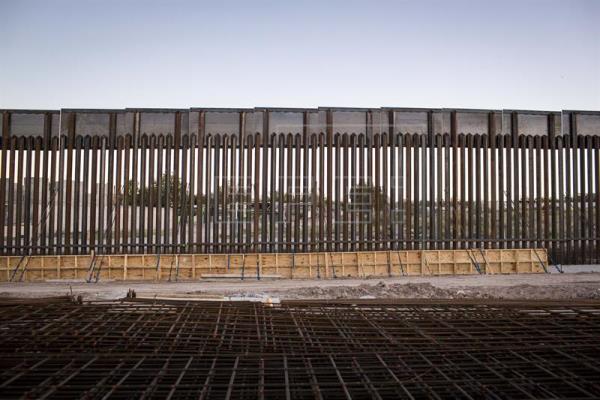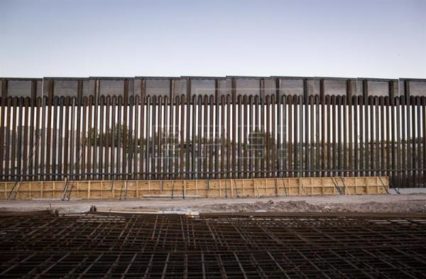As part of her residency, Siân Norris presents a new contribution to Wales Arts Review, At the Border which highlights the refugee crisis. Throughout 2017 these artists, including Siân Norris will take a leading creative role in what Wales Arts Review publishes, centring their skills on a challenging project over the course of a month. We were inundated with applications, receiving hundreds of emails about the positions, and it was no easy task whittling down all that talent to this final eleven. Our team of six editors debated long into the night, and in the end, we decided on a collection of people who we most want to work with, and whose work excites us. We think you will be excited by them too.
This is another segment from my longer work in progress about the refugee crisis today and in 1938 which I hope highlights the refugee crisis. In this section, Caro and her two colleagues drive to the new border that’s been erected by the Germans. The Czechs had sent the army to defend themselves and then turned back. The Nazis took all the ‘good land’ – the land that contained the factories and the industry. The quote from the old man is taken from a first-person account of a refugee family fleeing the annexation.
At the Border | A Piece Which Highlights The Refugee Crisis

They drove past a young couple with two sets of elderly parents. They had a peasant’s cart piled with mattresses, buckets of belongings hanging precariously from belts and ropes off the side. The cart was smart with paint, the three women dressed in bright colours that contrasted against faces grey with exhaustion. Each step was an effort; each step betrayed too long walking, walking, walking. A shock streak of white hair wasn’t quite concealed by the younger woman’s headscarf. A trauma response, Caro guessed. She tried to imagine what the family had had to do, to get across the border, her mind turning away from what could have turned one streak of such a pretty girl’s hair white.
The two older women were nibbling dry bread – eating it in slow mouthfuls the way a child does when they have a treat and want to make it last. Each bite betrayed a desire to make bigger, heartier bites.
‘How far?’ she asked Johnny.
‘Another hour,’ he said, his eyes fixed on the road in grim concentration.
She rested her head against the seat and closed her eyes. There had been another car journey, with Jim. He’d surprised her outside her flat, beeping his horn with schoolboy-like glee. Let’s make today an adventure, he’d said. A holiday, for you and me. She’d put on her sunglasses and wrapped a scarf around her hair and the two had headed out of Paris, him whistling and her laughing, until they found a river where they’d sunbathed and read books and eaten good food and drank a cool white wine they’d left chilling in the shallows. He’d kissed her face and her hair and the v of her shirt where it opened above her breasts. If he had asked her to, she knew she would have taken all her clothes off right there and lain down in the grass, utterly without shame, utterly brazen, utterly happy.
It was laughter, she missed. He made her laugh. Stories from his childhood, stories from Paris, stories about the writers and artists he knew personally and she knew by reputation. Whenever she thought of him she thought of him laughing, or that smile he saved just for her after sex. The smile of her body curling up towards him, his hands in her hair, laughing.
Caro felt like she hadn’t laughed since she last saw him. Had it really only been five days since he went to London, only three days since she’d arrived here from Paris?
‘This is it,’ said Mack, interrupting her thoughts as they approached the border. ‘You said you wanted to see failure? This is what failure looks like.’
Caro stepped out of the car, into the drizzling rain that quickly soaked through her hair and beaded on the edges of her fur. Her feet slipped slightly in the muddy ground, damp and mulched with wet leaves, as she walked towards the border fence.
So, she thought. This is what it looks like.
Betrayal looked like young German men with guns and uniforms; hard set mouths characterised by grim and arrogant pride – the same grim and arrogant pride she’d seen in Berlin. It sounded like the harsh jokes they shouted to one another, the crowing laughter, the cruel mockery of a people told one day that what they thought they knew, the country they thought was their own, no longer belonged to them. Betrayal looked like the strut in self-congratulatory shoulders that comes from annexing the best bit of a country, the minerals and factories and industry that they could now claim as their own.
Betrayal looked like people standing, staring, at a fence that hadn’t been there before. It sounded like the questions she’d heard over and over: how can a border move? How can a country change from one day to the next? How could a person have always lived in one country, and no longer live there? How could a person survive, once their home and their memories and their histories and everything they had ever known no longer belonged to them?
Betrayal looked like the realisation that your neighbours and your community were happy with the fence, were happy to welcome in the new regime and join in with the soldiers’ jokes and set their faces in hard, grim smiles. Betrayal looked like the realisation that people you’d once thought were just like you were in fact glad to see the back of you. It was the dawning realisation that everything you had ever feared about people was, in fact, the truth.
‘I have lived here my whole life,’ an old man said to Caro as she stood in front of the fence. His face was wet with rain or tears, she couldn’t tell which, as she shivered under her fur. ‘I have lived here my whole life,’ he repeated. ‘My father planted a tree in our garden that I climbed as a child. It blossomed every spring and gave us apples every autumn. And now, this autumn, I can’t collect the apples from my tree. I don’t know where I live anymore. I’m old. I can’t travel. I can’t get out, I don’t know where I would go or how I will get there. I thought I would die here, where I was born. Now they tell me where I was born is no longer the place I knew.’
‘What will you do?’ Caro asked, her eyes fixed on the skeleton of barbed wire.
He shook his head, his hands wringing an old woollen navy blue cap. ‘I thought I would die here, where I was born,’ he repeated. ‘I thought I would die here. Maybe I will.’ He looked at Caro. ‘You know what they said to me?’ he asked, his eyes wide with confusion. ‘My neighbours, the people I have known my whole life, whose children I saw grow up, whose children used to play in my garden, stealing apples from my tree? You know what they said?’
Caro shook her head. ‘No,’ she said. ‘What did they say?’
‘Jew, you will be shit.’
This was the border, then. Caro stared at it, in disbelief. It made no sense. How could one pin up a line of barbed wire and declare that this flimsy structure all spiny and deadly meant that people were no longer welcome in their homes? How could a state drive people from their land, stake a claim to the industry, and then say the land was theirs because they had decided where to lay some barbed wire? Who decided that this was the border now? Why at this point and not a metre behind or a metre in front? Who got to choose where a country started and began, if not the people who made their homes in it?
‘I don’t understand,’ she said, stupidly. ‘I don’t understand it.’
Johnny shook his head at her.
‘What is there to understand,’ he said. ‘Just write it. Go back to the hotel and write what you see here.’
‘I know that,’ she snapped at him. ‘I didn’t start this job yesterday.’
‘Understand this,’ said Mack, his voice spitting with anger. ‘Back home they think this is peace. They think that they signed their contract, that they waved their bit of paper at the news cameras and that war has been staved off. Understand that they sold these people, that old man shaking his head, that family with the cart, those children wearing your Paris fur, in order to keep themselves safe for what? Six months? A year? But this is not peace. It’s not peace. Understand that, Caro, and we’ll all three of us write that, and when the war really does come you’ll look back at this piece of flimsy barbed wire and know you saw its arrival.’
‘What’ll happen,’ she said, her voice slow with pain, ‘to those on the wrong side of the fence?’
‘They’ll die,’ said Mack, bluntly. ‘And so will those on this side of the fence. Some’ll get away, some’ll find that magic ticket for Zurich in their pockets. But most of them will die. Some’ll die here, some’ll be forced back and die over there. This fence won’t stop here. It’s just resting, and soon it’ll follow them eastwards too.’
Caro took another look around her. She looked at the soldiers laughing, lighting cigarettes for each other, occasionally shooting their guns into the air in a show of sick bravado. She looked at the families staring at the fence with an incredulous expression that would never leave their faces. She looked at the fence itself, and imagined it moving forward, step by step, like Birnam woods in her schoolgirl production of Macbeth. She pulled her fur collar closer around her neck, breathing frosty breath into her chin to try and warm herself.
‘Let’s go,’ she said. ‘I’ve seen what a border looks like. I’m cold, I’m wet. I don’t want to see anymore.’
This contribution by Siân Norris which highlights the refugee crisis is part of the Artists in Residence series.
This is another segment from Norris’ longer work in progress about the refugee crisis today and in 1938 which she hopes highlights the refugee crisis.












